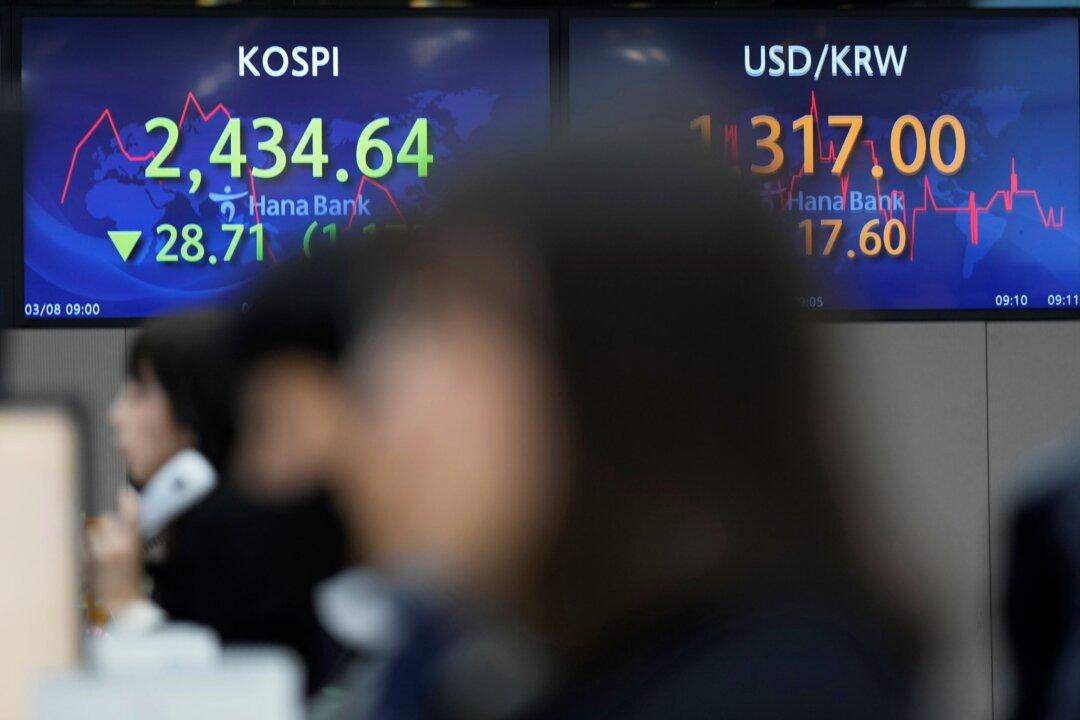TOKYO—Global shares were mostly lower Wednesday as investors fretted that the Federal Reserve might raise interest rates faster if the pressure stays high on inflation.
France’s CAC 40 shed 0.2 percent to 7,325.65 in early trading. Britain’s FTSE 100 dipped 0.3 percent to 7,898.54. Germany’s DAX inched down less than 0.1 percent to 15,555.97. U.S. shares were set to drift higher with Dow futures up 0.1 percent at 32,901.00. S&P 500 futures rose nearly 0.1 percent to 3,993.25.





